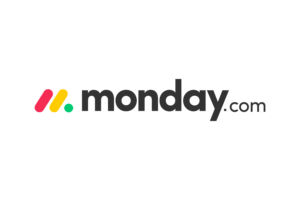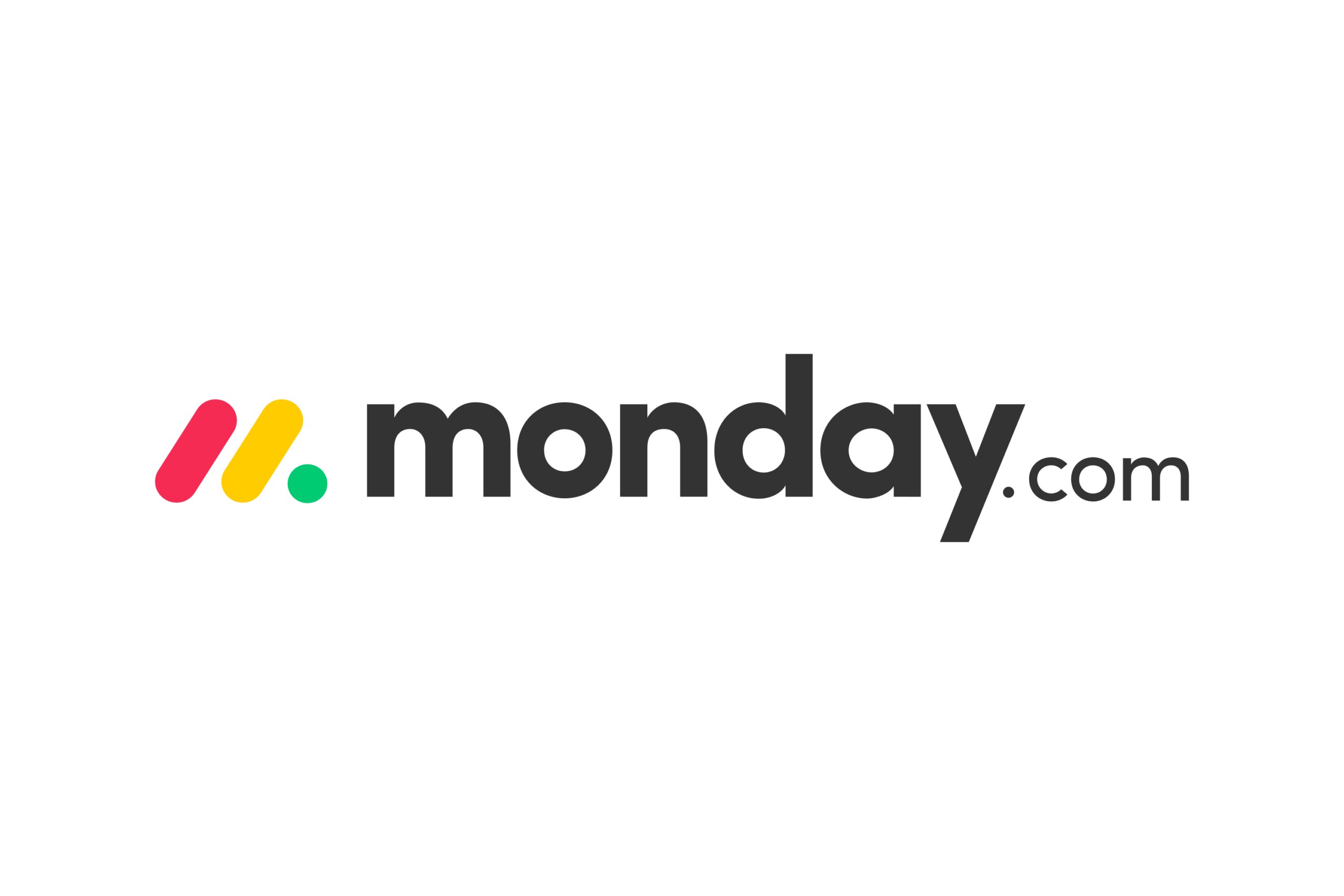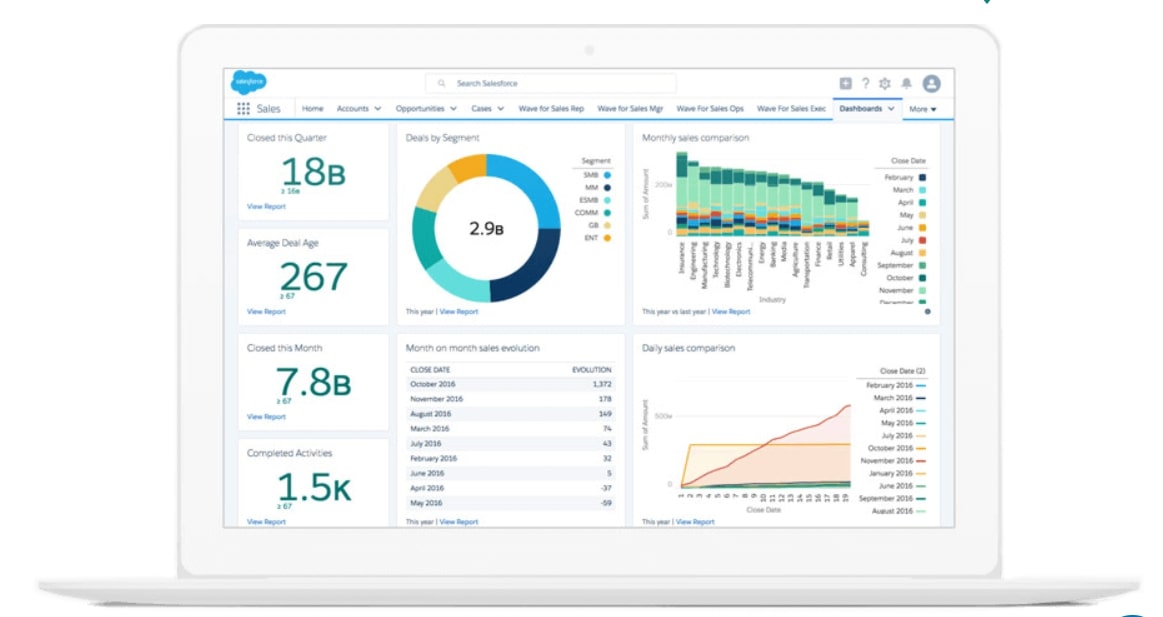Notion is a powerful all-in-one workspace that allows you to manage tasks, projects, and notes in one place. It offers a wide range of templates and integrations that can help you customize your workspace to fit your team’s needs. Notion’s flexibility and versatility make it an excellent choice for teams of all sizes and industries.
On the other hand, monday.com is a visual project management tool that allows you to manage your team’s tasks and projects in a simple and intuitive way. It offers a variety of customizable templates and integrations that can help you streamline your workflow and collaborate more effectively with your team. Monday.com’s user-friendly interface and visual approach make it an excellent choice for teams that value simplicity and ease of use.
In this article, we will compare Notion and monday.com in terms of features, pricing, and user experience. We will help you determine which tool is the best fit for your team’s needs and goals. So, whether you’re a small startup or a large enterprise, read on to find out which tool is right for you.
Notion vs monday.com: Overview
Notion and monday.com are both popular productivity and project management tools that offer a range of features to help teams collaborate and stay organized. However, there are some key differences between the two platforms.
| Features | Notion | monday.com |
|---|---|---|
| Project management | Yes | Yes |
| CRM Integration | No | Yes |
| Time tracking | No | Yes |
| Document management | Yes | No |
| Collaboration | Yes | Yes |
| Mobile app | Yes | Yes |
| Price | Freemium | Freemium |
Notion is a highly customizable tool that allows users to create and organize notes, tasks, and databases in a variety of formats. It offers a wide range of templates and integrations, making it a versatile tool for personal and team use. Notion also has a strong focus on knowledge management, with features like wikis and knowledge bases.

On the other hand, monday.com is a more structured project management tool that is designed to help teams manage tasks, projects, and workflows. It offers a visual, kanban-style interface that makes it easy to track progress and collaborate with team members. monday.com also has a strong focus on automation, with features like automations and integrations that help streamline workflows.
Monday.com is the best cloud-based project management tool that helps teams manage their workflow and collaborate more effectively. It provides a visual overview of your team's progress, making it easy to identify bottlenecks and areas for improvement. It's a great option for teams looking for a flexible and intuitive project management solution.
- User-friendly interface that allows for easy task and project management
- Customizable templates for various industries and functions
- Integration with popular apps like Slack, Google Drive, and Trello
- Visual overview of team progress and project status
- Flexible and intuitive project management solution
Overall, Notion is a more flexible and customizable tool that is well-suited for personal use and knowledge management, while monday.com is a more structured project management tool that is ideal for teams looking to manage complex projects and workflows.
Notion vs monday.com: Similarities
Notion and monday.com are both project management tools that offer a range of features to help teams collaborate and stay organized. Both platforms allow users to create and manage tasks, assign team members, and track progress. Additionally, both Notion and monday.com offer customizable templates and integrations with other tools to streamline workflows.
One key similarity between Notion and monday.com is their focus on visual organization. Both platforms use a visual interface to help users easily navigate and understand their projects. Notion offers a flexible, block-based system that allows users to create pages, databases, and other elements that can be customized to fit their needs. Similarly, monday.com uses a color-coded board system that allows users to quickly see the status of each task and project.
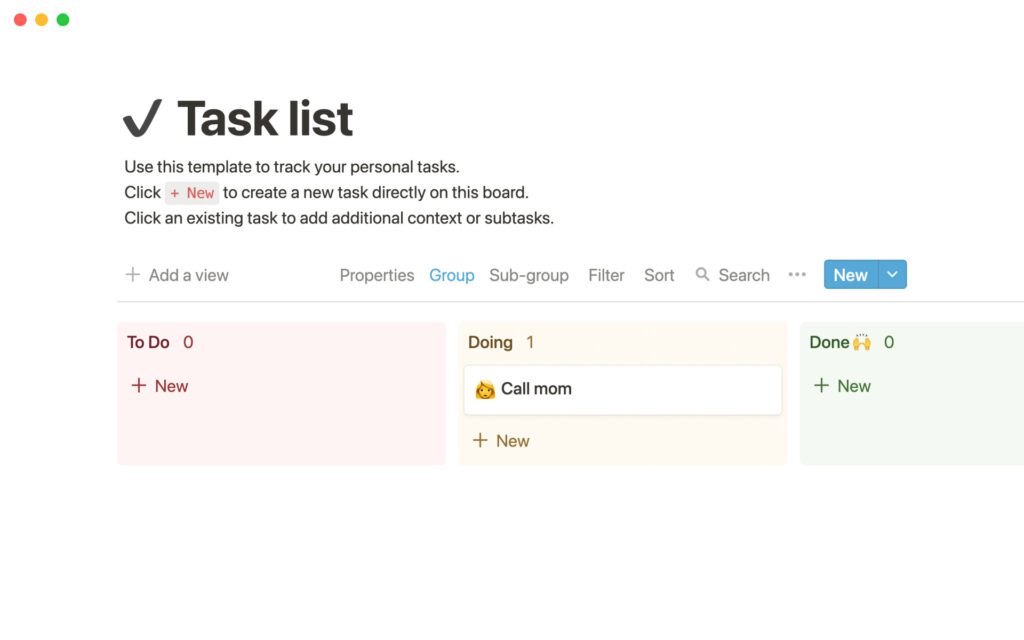
Another similarity between Notion and monday.com is their emphasis on collaboration. Both platforms offer features that allow team members to communicate and work together on projects. Notion offers a range of collaboration tools, including comments, mentions, and real-time editing. Similarly, monday.com allows users to leave comments, tag team members, and share files within the platform.
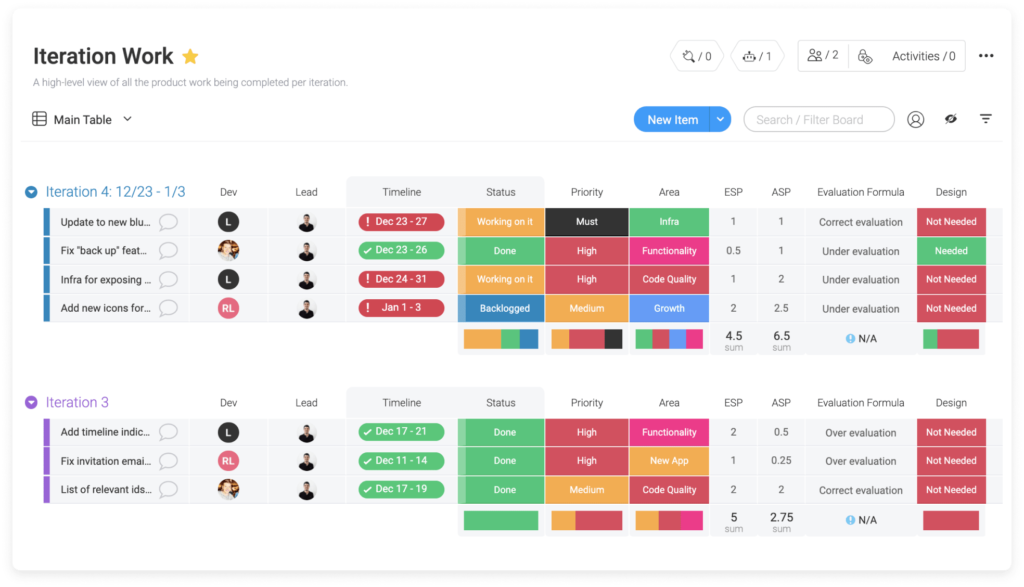
Finally, both Notion and monday.com offer a range of integrations with other tools to help users streamline their workflows. Notion integrates with a variety of apps, including Google Drive, Slack, and Trello, while monday.com offers integrations with tools like Zapier, Jira, and Salesforce. These integrations allow users to connect their project management tools with other tools they use regularly, making it easier to manage their work in one place.
Notion vs monday.com: Differences
Notion and monday.com are two popular productivity tools that offer different features and functionalities. Notion is a versatile tool that allows users to create and organize notes, tasks, databases, and wikis in one place. It offers a wide range of templates and customization options, making it suitable for personal and professional use. On the other hand, monday.com is a project management tool that focuses on team collaboration and task management. It offers a visual interface that allows users to track progress, assign tasks, and communicate with team members.
Notion’s main advantage over monday.com is its flexibility and versatility. It allows users to create and customize their own workflows, databases, and templates, making it suitable for a wide range of use cases. Notion’s database feature, for example, allows users to create custom databases for tracking tasks, projects, contacts, and more. It also offers a powerful search function that allows users to find and filter information quickly. In contrast, monday.com is more focused on project management and team collaboration, with less flexibility for customization.
Finally, Notion and monday.com differ in their user interfaces and user experience. Notion offers a clean and minimalist interface that is easy to navigate, with drag-and-drop functionality and keyboard shortcuts for quick navigation. It also offers a dark mode option for users who prefer a darker interface. In contrast, monday.com offers a more visual interface that is designed for team collaboration, with color-coded boards and cards that represent tasks and projects. It also offers a mobile app for on-the-go access.
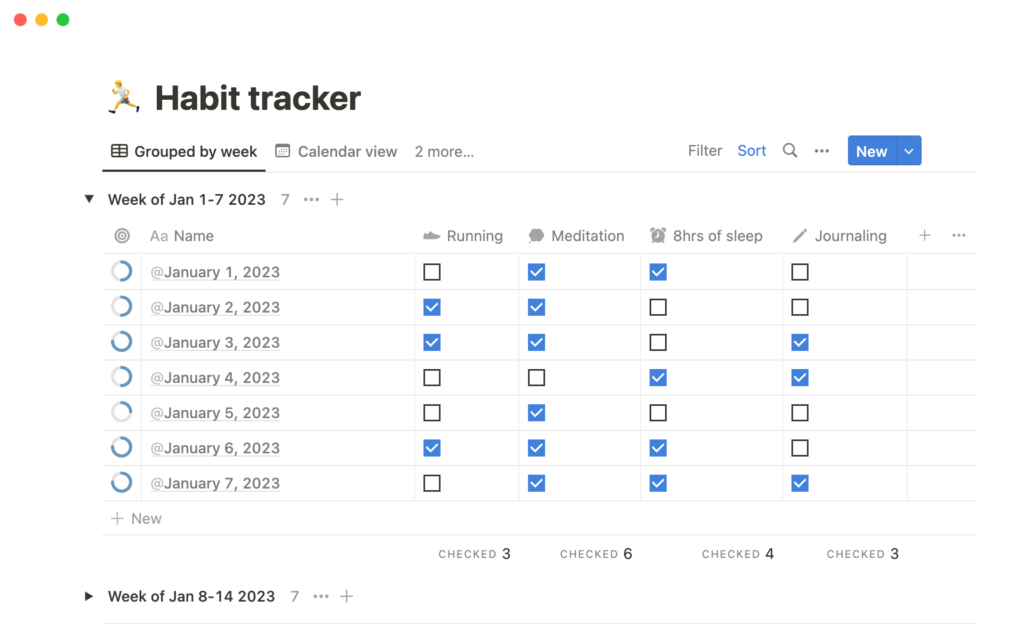
Notion vs monday.com: Key Features
Notion and monday.com are two popular productivity and project management tools that offer a range of features to help teams collaborate and stay organized. Here are some key product features of both tools:
Notion Key Features
- Flexible workspace: Notion offers a flexible workspace that allows users to create and customize pages, databases, and templates to suit their needs.
- Collaboration: Notion allows teams to collaborate in real-time, with features like comments, mentions, and sharing.
- Task management: Notion offers a range of task management features, including to-do lists, kanban boards, and calendars.
- Knowledge management: Notion is also a powerful knowledge management tool, with features like wikis, notes, and documentation.
- Integrations: Notion integrates with a range of other tools, including Google Drive, Slack, and Trello.
monday.com Key Features
- Customizable workflows: monday.com offers customizable workflows that allow teams to create and automate their own processes.
- Collaboration: monday.com offers a range of collaboration features, including comments, mentions, and sharing.
- Task management: monday.com offers a range of task management features, including to-do lists, kanban boards, and calendars.
- Reporting and analytics: monday.com offers powerful reporting and analytics features, allowing teams to track progress and identify areas for improvement.
- Integrations: monday.com integrates with a range of other tools, including Google Drive, Slack, and Trello.
Overall, both Notion and monday.com offer a range of powerful features for teams looking to improve their productivity and collaboration. Notion is particularly strong in knowledge management, while monday.com offers more advanced reporting and analytics features. Ultimately, the choice between the two tools will depend on the specific needs of your team.
Notion vs monday.com: Data Analytics and Reporting
Notion and monday.com are two popular project management tools that offer data analytics and reporting features. Here is a detailed comparison of their capabilities:
Data Visualization
Both Notion and monday.com offer various data visualization options such as charts, graphs, and tables. Notion provides a wide range of templates for different types of data visualization, while monday.com offers customizable dashboards that can be tailored to specific project needs.
Customization
Notion allows users to create custom databases and tables to track and analyze data. Users can also create custom formulas and filters to manipulate data. On the other hand, monday.com offers custom fields and tags that can be added to tasks and projects to track specific data points.
Integration
Notion integrates with various third-party tools such as Google Sheets, Zapier, and Slack, allowing users to import and export data easily. monday.com also offers integrations with popular tools such as Trello, Jira, and Asana.
Reporting
Notion provides a range of reporting options, including exporting data to CSV or PDF formats, creating custom reports, and sharing reports with team members. monday.com offers a reporting dashboard that provides an overview of project progress, including task completion rates, time tracking, and budget tracking.
Real-time Data
Both Notion and monday.com offer real-time data updates, allowing users to track project progress and make informed decisions quickly.
Mobile App
Notion and monday.com both offer mobile apps that allow users to access project data and analytics on the go.
Overall, both Notion and monday.com offer robust data analytics and reporting features. Notion is more customizable and offers a wider range of data visualization options, while monday.com provides a more streamlined reporting dashboard. The choice between the two will depend on the specific needs of the project and the preferences of the team.
Notion vs monday.com: User Friendliness
When it comes to user friendliness, both Notion and monday.com have their own strengths and weaknesses. Here are some angles to compare them:
Ease of use
Notion has a steeper learning curve compared to monday.com. This is because Notion is a more versatile tool that can be used for a variety of purposes, from note-taking to project management. On the other hand, monday.com is more focused on project management and has a simpler interface that is easier to navigate.
Customizability
Notion is highly customizable, allowing users to create their own templates and databases. This can be both a strength and a weakness, as it gives users more control over their workflow but can also be overwhelming for those who prefer a more structured approach. monday.com, on the other hand, has a more rigid structure but still allows for some customization through its various board views.
Collaboration
Both Notion and monday.com are designed for collaboration, but they approach it in different ways. Notion allows for real-time collaboration on documents and databases, while monday.com has a more task-oriented approach with features like task assignments and progress tracking.
Mobile app
Notion has a mobile app that is well-designed and easy to use, but it lacks some of the features available on the desktop version. monday.com’s mobile app is more feature-rich and allows users to manage their projects on the go.
Overall, both Notion and monday.com are user-friendly tools that can help teams stay organized and productive. The choice between them ultimately depends on the specific needs and preferences of the user.
Notion vs monday.com: Collaboration
Notion and monday.com are both popular collaboration tools that offer a range of features to help teams work together more effectively. Here’s a comparison of their collaboration features:
Task Management
Both Notion and monday.com offer robust task management features that allow teams to create, assign, and track tasks. Notion’s task management is more flexible and customizable, while monday.com’s is more visual and intuitive.
Communication
Notion has a built-in commenting system that allows team members to discuss tasks and projects in real-time. Monday.com also has a commenting system, but it’s more limited in terms of functionality.
File Sharing
Notion and monday.com both allow teams to share files and documents, but Notion’s file sharing is more integrated with its other features, such as task management and wikis.
Collaboration
Notion’s collaboration features are centered around its wikis, which allow teams to create and share knowledge bases, project documentation, and other resources. Monday.com’s collaboration features are more focused on visualizing project progress and keeping everyone on the same page.
Overall, Notion is a more flexible and customizable collaboration tool, while monday.com is more focused on visualizing project progress and keeping everyone on the same page. Which one is better for your team depends on your specific needs and preferences.
Notion vs monday.com: Integration
When it comes to third-party integrations, both Notion and monday.com offer a wide range of options to choose from. Notion allows users to integrate with popular tools such as Google Drive, Slack, Trello, and Zapier, among others. This allows users to streamline their workflow and easily transfer data between different platforms.
On the other hand, monday.com also offers a variety of integrations with tools such as Google Drive, Slack, and Zapier, as well as other popular tools like Jira, Salesforce, and HubSpot. This allows users to connect their project management software with their CRM or other business tools, making it easier to manage their workflow and stay organized.
Overall, both Notion and monday.com offer a robust selection of third-party integrations that can help users streamline their workflow and improve productivity. While the exact number of integrations available may differ, both platforms offer a wide range of options to choose from.
Conclusion
In conclusion, both Notion and monday.com are excellent project management tools that offer unique features and benefits. Notion is better suited for individuals or small teams who need a versatile tool for note-taking, task management, and collaboration. On the other hand, monday.com is ideal for larger teams or organizations that require a more structured and customizable approach to project management. Ultimately, the choice between Notion and monday.com depends on your specific needs and preferences. It’s recommended to try both tools and see which one works best for you.

